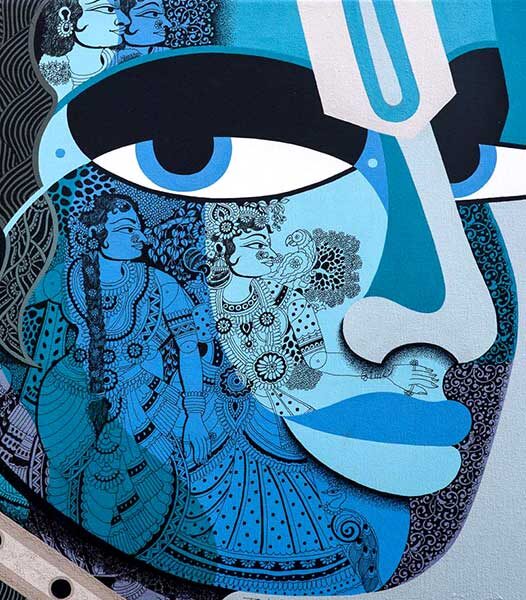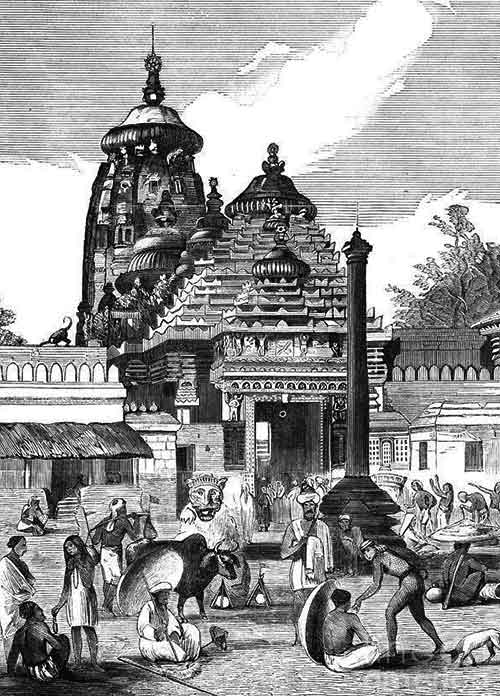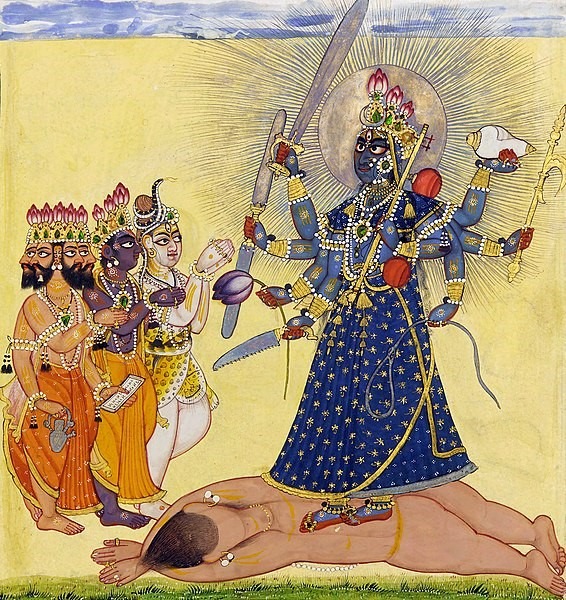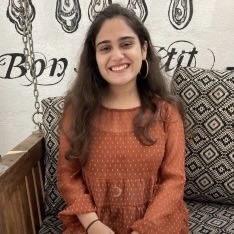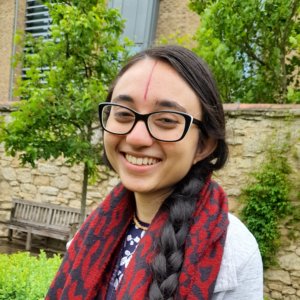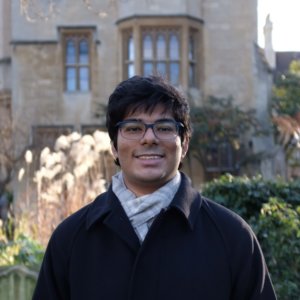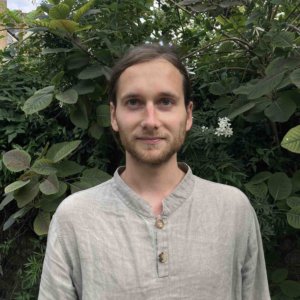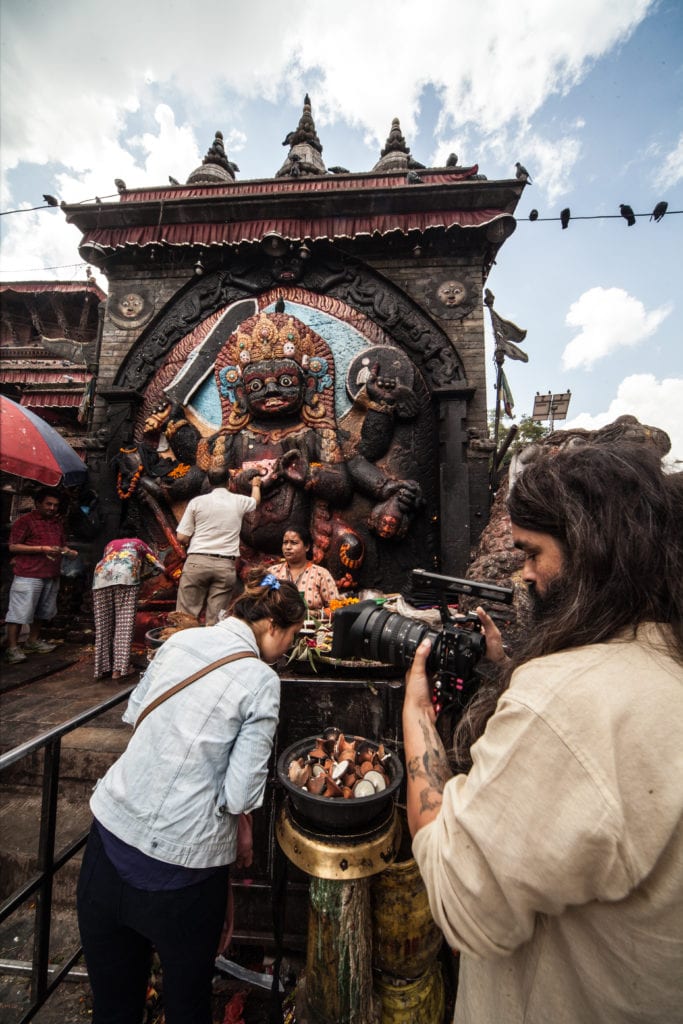OCHS bursaries and scholarships are generous donations from individuals and foundations that we award to our students. This year we awarded 17 scholarships and bursaries amounting to almost £15,000.
Sri Swami Haridas Giri Scholarship
Nainika’s Bursary for Kashmiri Shaivism & Kashmiri Hindu Studies
Parvathi Foundation Scholarship
Hanuman Bursary
Narasimhacharya Bursary
Jiva Goswami Scholarship
Prof. Makhan Lal Roy Chowdhury Book Prize
Hansraj and Kanchanben Popat Bursary
Ramalah Alagappan Bursary
Amit Mishra Bursary
Dr Sivaswami & Renuka Nagraj Bursary
Gopal and Elizabeth Krishna Bursary
Tristan Elby Bursary
Wernicke Olesen’s Bursary for Pali and Sanskrit Studies
Giving a scholarship is an excellent opportunity to support young talented minds in their academic endeavours and to raise academic interest in Hinduism on a global scale.
Below is an overview of some of the projects (more will follow later) we supported this year:
Sri Swami Haridas Giri Scholarship
Mohini Gupta 
DPhil candidate, Mansfield College, University of Oxford
I aim to conduct research in the field of South Asian language politics and translation, specifically the language politics between English and Indian languages, and the relationship of the urban youth with the languages they speak. I have been investigating this topic as a student of literature and culture studies, independent researcher, literary translator, writer, and higher education professional over the last decade.
My research at Oxford will push my project further to apply the lenses of postcolonialism, sociolinguistics, as well as anthropology to understand the reasons behind the attitudes of the urban youth towards its mother tongue, within the frameworks of ‘postcolonial shame’ and language-based humiliation. The faculty at Oxford will enable me to broaden the scope of my research through their expertise in these disciplines.
Sri Swami Haridas Giri Scholarship
Poorva Palekar
MPhil student, Lady Margaret Hall, University of Oxford
I am keen to study more about the ‘Kalpa’ vedāṅga and explore the samskāra gṛhya rituals in my MPhil thesis. I plan to especially focus on the evolution of the vivāha ritual from the Vedic ‘śṛtis’, to ‘smṛtis’ and the modern methods and ‘paddhatis’ referred to today. I plan to study the marriage rituals in Maharashtra where the vivāha samskāra is still an important cultural and religious life event. The study of the influences of folk traditions and the emergence of local religious sects on the vivāha samskāra will also be an important aspect of my thesis. My research will help better understand the development of the ritual over time and the exchange between orthodox and folk traditions during important events like marriage.
Prof. Makhan Lal Roy Chowdhury Book prize and Wernicke Olesen’s Bursary for Pali and Sanskrit Studies
Visvapriya Desai
BA student, Worcester College, University of Oxford
In my first year I had the invaluable opportunity of studying Sanskrit at the OCHS. This made me appreciate how important a grasp of language and translation theory is for sensitive engagement with religious thinking and its interpretation in context – especially considering the roots of academic study of Hinduism in scriptural translation. I applied this across a broad range of subject matter, from the Cāndogya Upaniṣad to the Buddhist Heart Sutra. What does it mean to claim “tat tvam asi”? What is really the nature of śūnyatā in Mahāyāna Buddhism? These were all questions one could only unravel by engaging with the text in its original language. At a conceptual level this supported me even in other papers such as Biblical Studies – aware now of how much can turn theologically on the translation, and thus interpretation, of one word or phrase.
I am grateful to have the OCHS’s support in continuing to deepen my learning of Sanskrit and Hinduism. One of my papers next year, Hinduism: Sources and Formations, highlights the Vedas, Upaniṣads and Bhagavad Gītā in the development of classical Hinduism. Another, Modern Hinduism, covers many themes, such as Vedānta and Tantra, articulated in Sanskrit text. I will also be writing a thesis for the Further Studies in Hinduism paper in my third year and anticipate engaging with Sanskrit scripture. My Sanskrit studies will sharpen my ability to handle this content in a nuanced way that addresses Hinduism and the study of it in its historical and interreligious context.
The OCHS has been a caring community that nurtures a real, holistic dedication to learning, and I am deeply grateful for the support they so generously provide.
Hansraj and Kanchanben Popat Bursary
Ranjamittrika Bhowmik
DPhil candidate, Hertford College, University of Oxford
My doctoral thesis studies and compiles a preliminary historiography of the Tukkhā songs of North Bengal composed by the Rājbaṃśī community in the Rājbaṃśī lect, a living tradition largely unexplored by the academic community in India and beyond. My paper analyses language and practice, combining literary criticism with ethnographic research. These songs were influenced by devotional traditions such as the Buddhist Sahajayāna, Śaivism, Śāktism and Vaiṣṇavism. I have conducted extensive fieldwork in India (2017-2020) and documented and archived a number of songs (close to one hundred), interviews and audio-visual performances. My work focuses on the oral tradition (songs) and performative art and on the direct connections between the Rājbaṃśī living traditions and the rituals and cosmology depicted in Tantric medieval literature in Bengal. The rich corpus of songs contains various allegorical and esoteric themes and metaphors on the soul, body, training the mind as well as social commentaries. The thesis positions the songs as cognate with a number of Hindu and Buddhist Tantric schools that developed and flourished in the region of northeastern India and North Bengal, in particular, in the course of the last millennium.
Hanuman Bursary
Imran Visram
DPhil candidate, St Anthony’s College, University of Oxford
My research is on a body of religious songs, known as the ginans, which were composed at the height of Bhakti Vaishnavism in North and West India. Many ginans draw on mythological narratives from the Hindu tradition for the purpose of religious instruction, recounting, for example, the teachings of Krishna to Arjuna, the story of Raja Harishchandra, and the chronicles of each of the ten incarnations of Lord Vishnu. Using the ginans as a leeway into the broader religious soundscapes of South Asia, my project is interested in assessing how we think and write about the pasts of oral literary traditions from the region more generally. The conclusions of my research will, therefore, also shed light on related lyrical traditions such as the bhajan, kirtan, Sufiana kalam, and qawwali.
Hanuman Bursary and the Gopal and Elizabeth Krishna Bursary
Barbora Sojkova
DPhil candidate, Balliol College, University of Oxford
I am currently writing up my DPhil thesis Animals in Vedic Literature. My research focuses on the ways in which Vedic people, semi-pastoralist tribes who lived in the north-east of the Indian subcontinent in the first millennium BCE, described the natural world around them, and particularly animals. Through a survey of the Vedic corpus, I am hoping to establish what knowledge Vedic people had about animals, and how much we, contemporary researchers, can tease out from the extant literature. Whilst the corpus is large and complicated, it is narrow in its understanding, viewing the world solely through the lens of the ritual which makes my project complicated and exciting in the same time
Dr Sivaswami & Renuka Nagraj Bursary
Utsa Bose
Mphil student, St. Cross College, University of Oxford
Goddesses, as imagination and lived reality, form the disquiet heart of popular imagination in the Indian subcontinent. Living through a devastating worldwide pandemic which had a particularly terrible impact on India, I chose to write my current MPhil thesis on the social space of plague in late colonial Calcutta. With an aim to further explore this topic, I plan to compare and analyse the birth, growth and development of “plague goddesses” in Southern India, particularly in the city of Bangalore. The deification of a disease as a goddess is by no means a new phenomenon. The subcontinent has seen the enduring cult of Śītalā, the goddess of smallpox, whose temples are spread out over different parts of the country even today. The onset of the bubonic plague epidemic in 1896 led to varying degrees of paranoia and panic in the subcontinent, and the disease soon spread to the different cities. While the plague was most virulent in Bombay, the southern states of Karnataka and Tamil Nadu were among the worst hit. These states saw the establishment of “plague temples” meant to propitiate “Plague Amma” (The Plague Mother/Goddess). Bangalore had the highest number of such temples. Clustered and scattered around the city, these temples often functioned independently of one another and installed images of the plague goddess in their premises. What is of startling interest is the fact that worship in these temples continues today. However, the many lives, histories and traditions of these temples are still left comparatively understudied and constitute an important research desideratum.
Who are these plague goddesses? Is each goddess different from the other? What is their relationship with other disease goddesses, and indeed with each other? Do they claim descent from other gods or imply a new genealogy? What is the social life of these goddesses? How, if at all, has worship patterns changed over the years? These are some of the questions I hope to explore.
Narasimhacharya Bursary
Valters Negribs
DPhil candidate, Wolfson College, University of Oxford
I am in the final stages of my DPhil Oriental Studies course, writing up the last chapters of my thesis “Ascetic Teachings for Householder Kings in the Mahābhārata”, which is supervised by Professor Christopher Minkowski. The thesis will contribute to the scholarly understanding of early ascetic teachings in Ancient India, the relationship between ascetic teachings in the Mahābhārata and early Buddhist and Jaina literatures, and, in particular, it will examine how such ascetic teachings came to be presented as relevant for householder kings.
Ramalah Alagappan Bursary
Smridhi Chadh
MPhil student, St. Cross College, University of Oxford
I have a special interest in Śaivism and the Śakta cults and I wish to do a combinational study of these two very closely related traditions, especially focusing on Kashmiri and northern branches while tracing a sacred map of the hitherto lesser-known sites.
As I work on this project, I understand that I also wish to include more visuals than has since been attempted. I am a student of Sanskrit, and while I do plan to use the literature, I also plan to make critical use of the material evidence to ascertain claims and facts. Locating a sacred geography would transcend large, bordered spaces and also focus on the material content of these spaces, especially focusing on the perception of the goddess and projecting modern anthropological frameworks in a historical time to better understand the milieu in which this culture operated.
